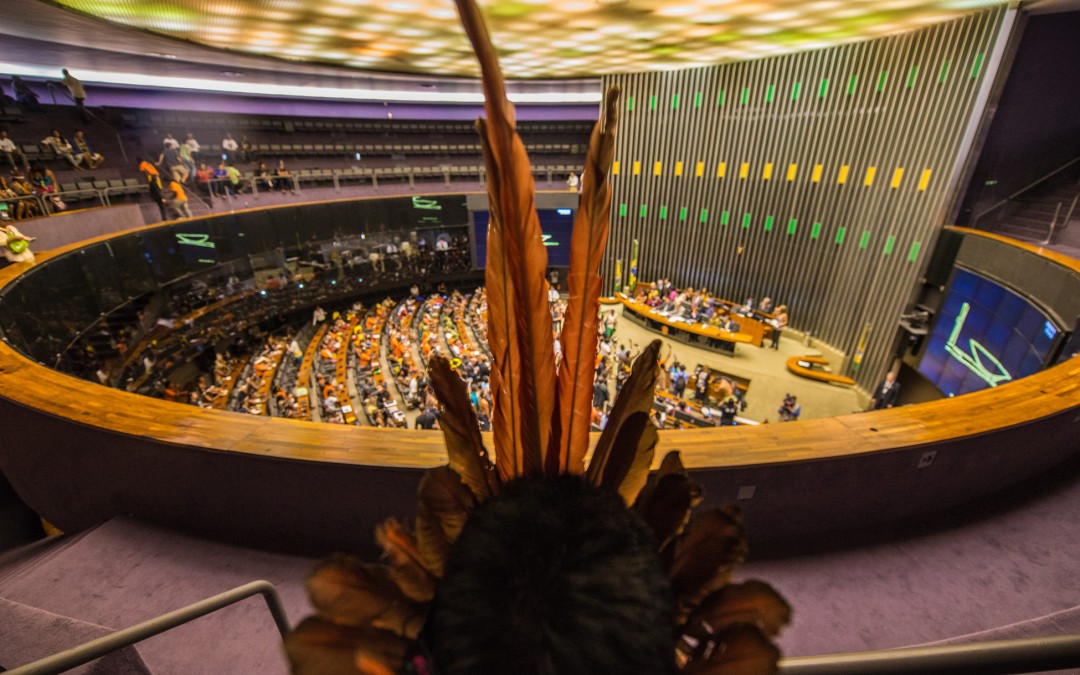On the last few years, Brazil’s indigenous people have been facing strong pressures that have intensified in all state power spaces. In parliament, have prevailed in all its levels, the the interest of groups mostly against indigenous peoples rights. In view of that is on the parliament that builds legal regulations that bind the whole society, it makes necessary to see this space as strategic to the empowerment of our people and achieve in an effective way that our struggles and agendas to be evidenced and transformed in resistance and power instruments in this accentuated context of strength correlation and of permanent attacks to the indigenous rights.
The damaged caused in Municipal councils that have indigenous populations are evident, and on the State Congresses, but without indigenous representation. Such losses are even bigger on the National Congress scope that on its composition does not even have an indigenous. This feature of legitimate representatives of indigenous peoples absence gives way to the strong reactionary, fundamentalist, and financial group’s interests agenda, highlighting the ruralist group, that historically acts as enemies of Indigenous People.
On the last City elections, we’ve acted strongly on the incentive of indigenous applications all over brazilian territory. This tactics resulted on important results. Hundreds of indigenous candidates runned to city councilors and mayors in several citiies of the country. We’ve reached the historical mark of 167 indigenous elected as city councilors and 5 indigenous elected mayors on their birth city, which we believe will defend a progressive and positive agenda that has in its chorum the struggle and claims of originating people and traditional communities, the human rights schedule, the environment and democracy defense, finally, the set of social policies conquered by all brazilian society.
However, the political system is antique, grounded on the economical power and instrumentalized by the elites of this country. For those reasons, it makes necessary to keep fighting for the political reformation, that is not reduced to the electoral reformation, to assure the traditionally marginalized society distinct segments power spaces and real and participative democracy, that allows for instance to the indigenous peoples the electoral dispute participation, being through the classic partisan path, of different electoral colleges or own autonomous social organization mechanisms, decision collective spaces. Considering that in 2018 all over the country will be focused on state and national elections to state and federal Congress, governors and Country President, the focus is that our people act no longer as mere supporting on the election process. That is why we call all the Brazil’s indigenous people that from now on, start their discussion on the local and regional scope about the need to launch even more indigenous candidates to the next elections dispute, encouraged warriors, willing to occupy the state parliament and National Congress.
Take this indigenous people struggle agenda to the political debate must be seen as a mission of all the brazilian indigenous movement.
By an increasingly indigenous parliament.
Brasília-DF, January 31st 2017.
Brazil’s Indigenous People Articulation – APIB

